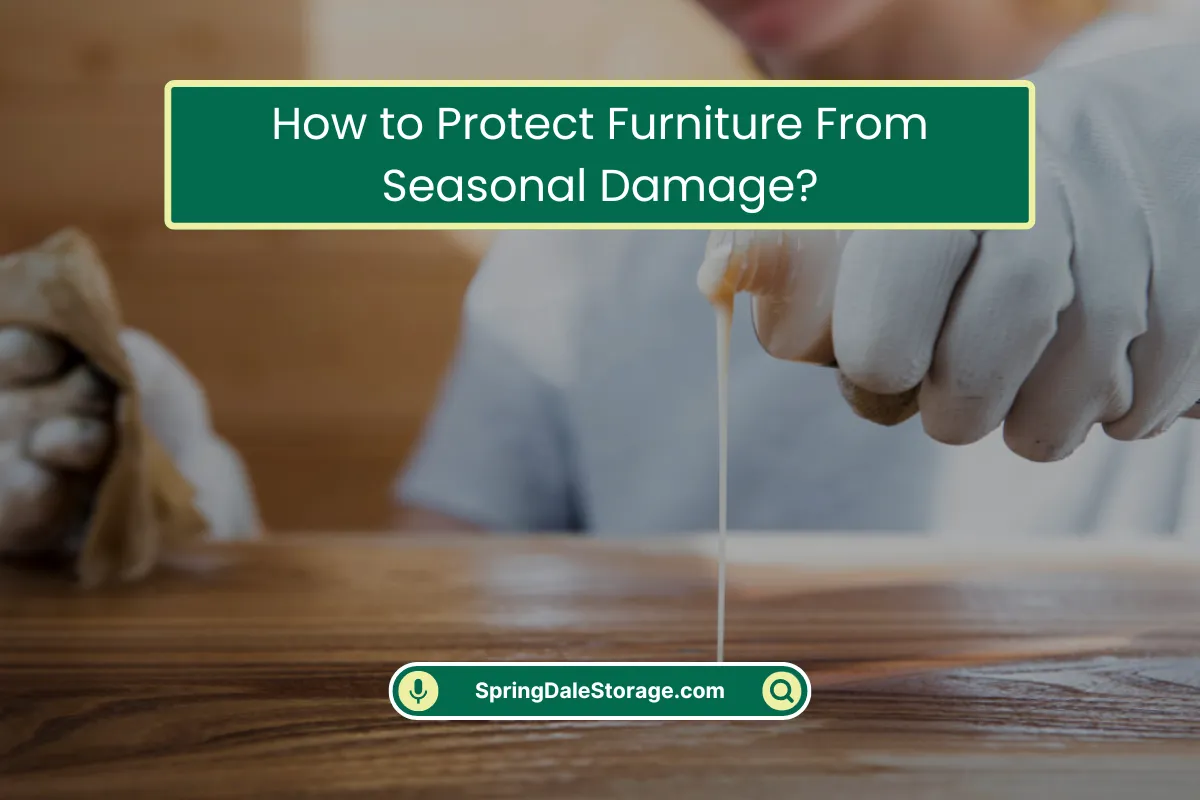Let me tell you about the time I murdered a $2,000 leather sofa. It was my first “real adult” purchase – top-grain Italian leather, the kind that feels like butter. I positioned it proudly by the living room windows where the afternoon sun poured in.
Big mistake.
By summer’s end, the leather looked like alligator skin – cracked, faded, and about 20 years older than it actually was. The repair guy took one look and said, “Yeah… this is why we tell people not to do that.”
That was my wake-up call. Since then, I’ve become weirdly obsessed with protecting furniture from seasonal damage. Here’s everything I’ve learned the hard way.
How Each Season Wrecks Your Stuff?
Summer is a Sneaky Bastard
- Sunlight doesn’t just fade colors – it destroys them
My navy blue armchair is now permanently two-toned because I didn’t rotate it. - Heat makes wood move more than my ex’s moods
My solid oak dresser drawers either won’t open in August or rattle like maracas in December. - Leather cracks without warning
Conditioner isn’t optional – it’s CPR for your couch.
Winter is a Silent Killer
- Dry air sucks moisture from wood faster than my Dyson
Those cracks in your tabletop? That’s winter’s handiwork. - Metal gets brittle when cold
I snapped a drawer pull clean off last January like it was made of crackers. - Salt is furniture poison
Those white rings on chair legs? Road salt eating through the finish.
Spring/Fall Play Dirty Too
- Humidity swells wood like a sponge
Ever tried opening a kitchen cabinet after a week of rain? Exactly. - Temperature swings cause more drama than reality TV
Constant expanding/contracting leads to cracks and splits.
What Actually Works? (From My Personal Experiments)
Beating Sun Damage
- UV window film saved my sanity
$20 on Amazon prevented more fading than my expensive curtains ever did. - Rotate furniture like tires
That sun-bleached side? Make it face the wall for six months. - Leather conditioner is non-negotiable
Skip it and watch your couch age faster than a U.S. President.
Winterproofing That Matters
- $15 hygrometer = wood’s best friend
Keep humidity between 40-60% or watch your furniture crack. - Rubber caps on metal legs
I cut up an old bike tube – not pretty but neither is rust. - Wax before heating season
Think of it as chapstick for your dining table.
Humidity Hacks That Don’t Suck
- Bamboo charcoal > silica packets
Toss some in drawers – they absorb moisture and can be “recharged” in sunlight. - Leave breathing room behind furniture
That 2-inch gap prevents condensation and mold. - Elevate everything in storage
Pallets or 2x4s keep air circulating underneath.
When to Stop Fighting and Get Storage?
Let’s be real – sometimes your house just can’t protect your stuff:
- When your basement smells like a locker room.
- When your attic bakes like a pizza oven.
- When you’re tired of playing furniture Tetris in your living room.
A proper climate-controlled unit costs less than replacing water-warped antiques. I learned this after ruining my grandma’s cedar chest – that mildew smell never really comes out.
The Hard Truth
Your furniture is in a constant battle against the elements. A little effort now saves you from:
- That sinking feeling when you notice new cracks.
- The regret of “I should’ve protected it better”.
- The wallet pain of replacement costs.
And if you need somewhere to stash seasonal pieces? Well, let’s just say I’ve become a storage unit evangelist after one too many furniture funerals.
Pro Tip: Old cotton sheets make better furniture covers than plastic – they breathe better and don’t make your home look like a meth lab.
What’s your best furniture preservation trick? Mine’s using tennis balls on chair legs – not classy, but neither are scratched hardwood floors.
(Need a space where your furniture won’t get wrecked by seasons? Our protective units maintain perfect 55°F/50% humidity year-round – like a spa for your stuff.)













0 Comments